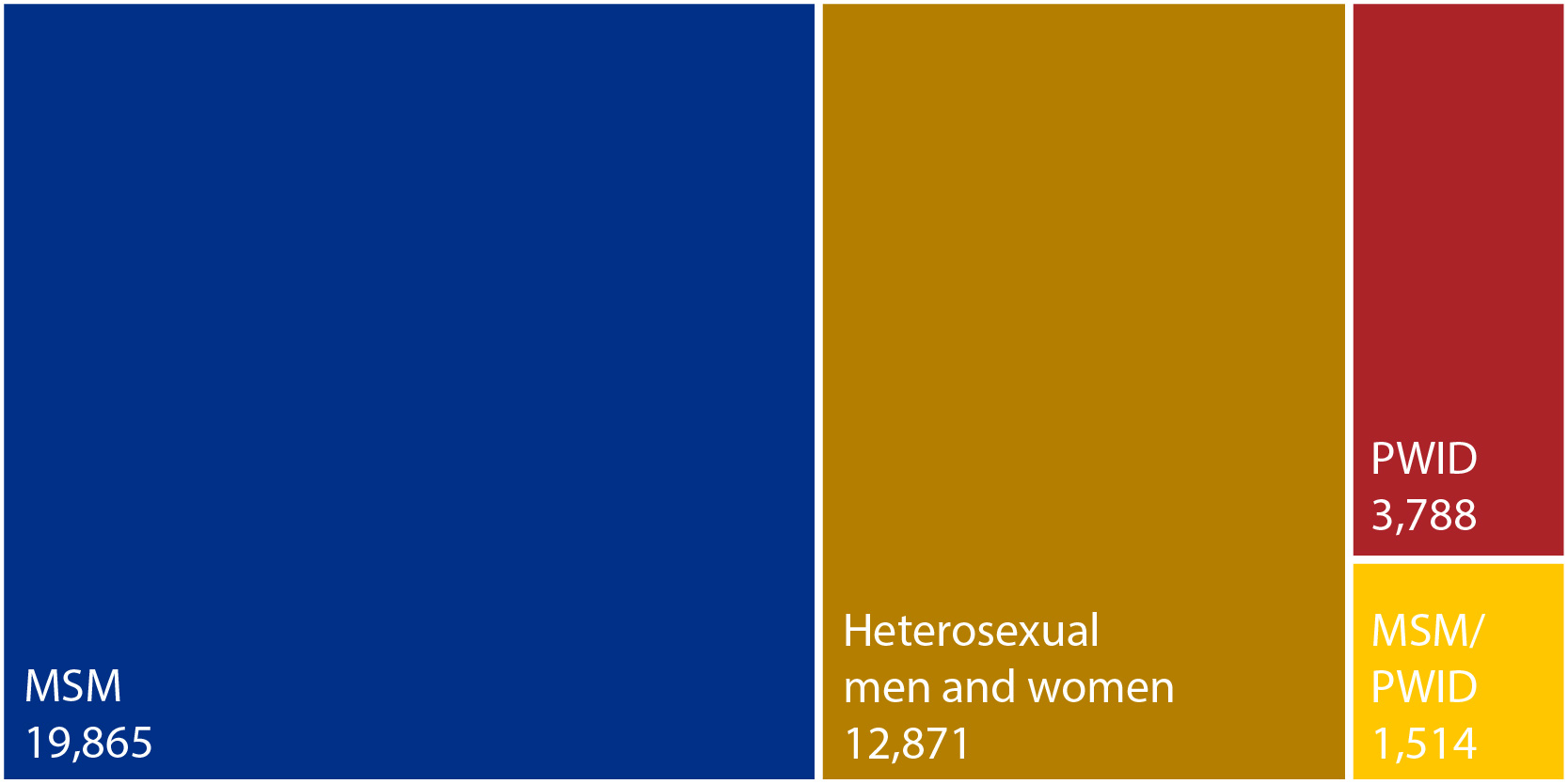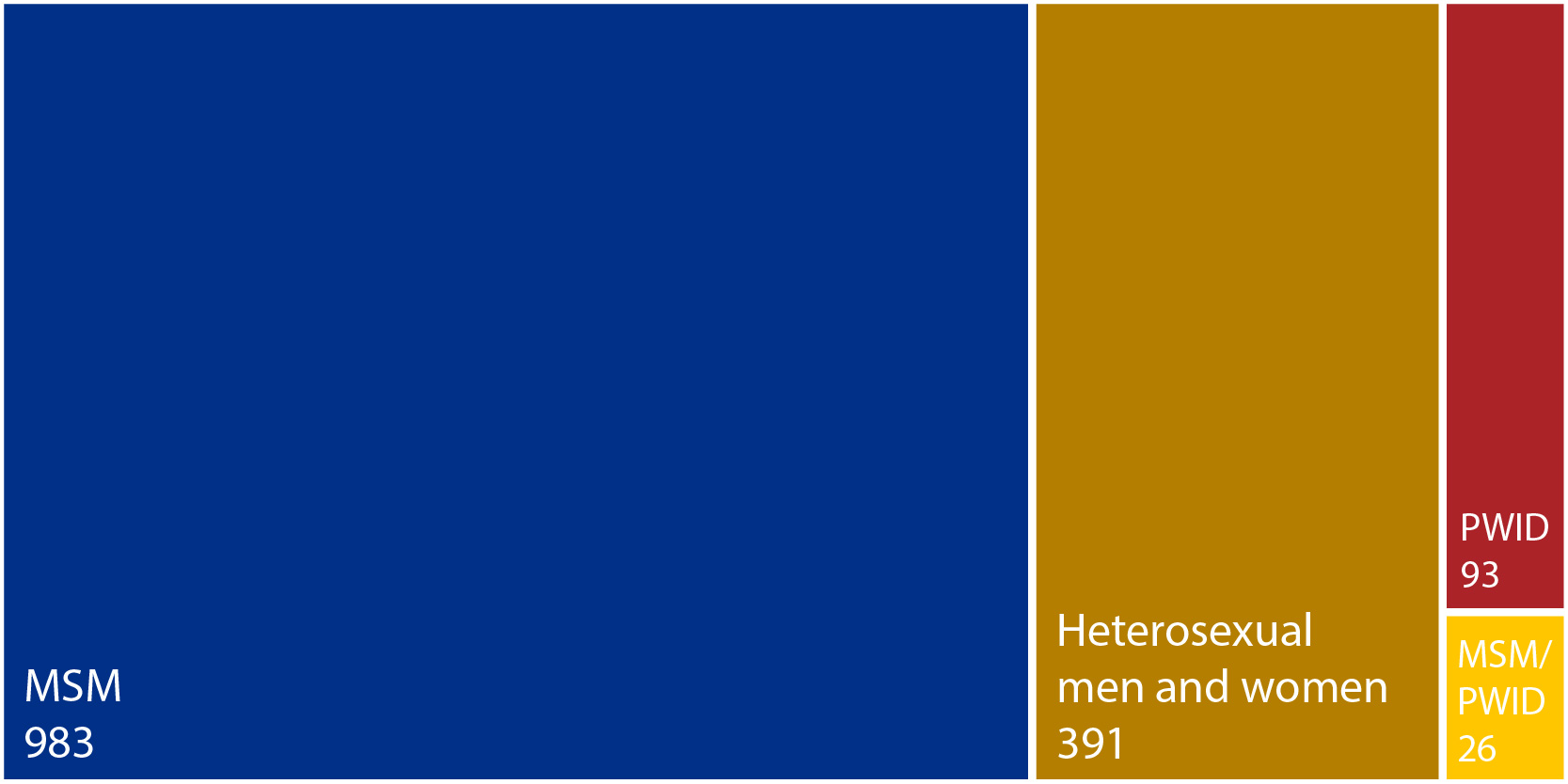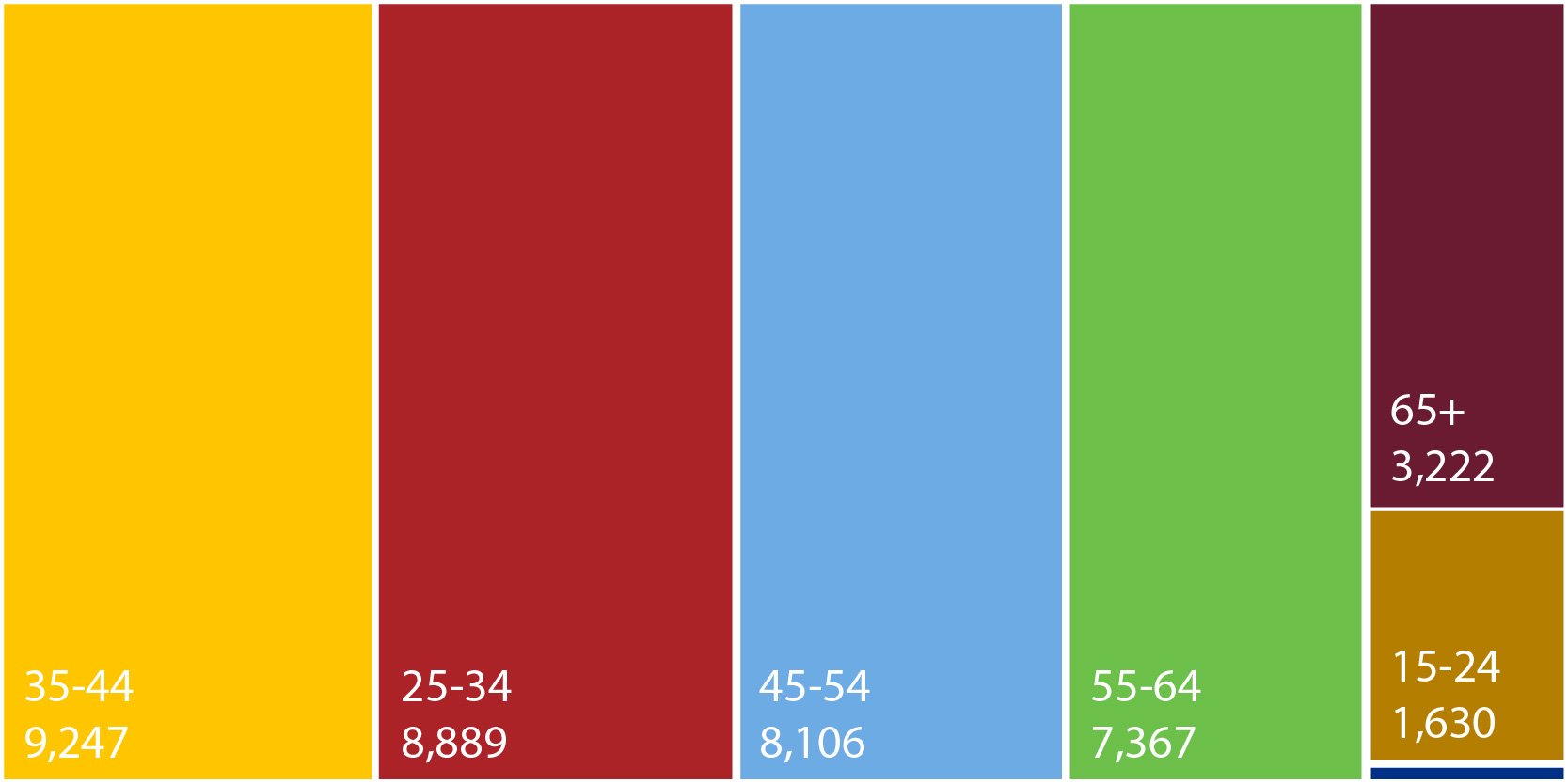National Black HIV/AIDS Awareness Day
February 7, 2024, is National Black HIV/AIDS Awareness Day (NBHAAD). NBHAAD offers the opportunity to increase awareness, start conversations, and highlight the work that reduces HIV among Black Texans.
Advances in medical care enable people living with HIV to stay healthy and live longer. However, not all people living with HIV are in care. Some people living with HIV may not know their status, while those who do may not seek care because they do not feel ill. Others may have problems affording or accessing health care. Still others may not seek medical care because of substance abuse, mental health issues, or HIV-related stigma. In each case, ensuring Black Texans living with HIV are diagnosed early, seek care, and are effectively treated can reduce the burden HIV places on an individual.
HIV and Black Texans
A Black Texan receives an HIV diagnosis about every six hours.
Even though Black people make up about 12 percent of the Texas population, the 38,547 Black people living with diagnosed HIV in 2022 make up more than a third of Texans living with diagnosed HIV.
Most of the Black Texans living with diagnosed HIV in 2022 were gay and bisexual men and other men who have sex with men (MSM). Among those diagnosed with HIV in 2022, MSM represented an even higher proportion compared to those with other modes of transmission.
| Black Texans living with diagnosed HIV in 2022 | Black Texans diagnosed with HIV in 2022 |
|---|---|
By Mode of Transmission |
By Mode of Transmission |
By Age 86 people were younger than 15 |
By Age Four people were younger than 15 |
| *PWID - People who Inject Drugs | |
There is good news. The number of Black Texans diagnosed with HIV has fallen slightly since 2013, from 1,517 diagnoses in 2013 to around 1,497 in 2022, even as the statewide Black population has grown by more than 17 percent.
While some groups saw decreased numbers of infections, others saw increases. From 2013 to 2022, the number of Black Texans who acquired HIV through heterosexual contact declined by 33 percent, but Black Texans who acquired HIV through male-to-male sex increased by 10 percent.
Know Your Status
Some Black Texans living with HIV do not know they have it. People who know their HIV status are more likely to take steps to protect their health and prevent transmission.
The only way to know if you have HIV is to get tested. You can find testing sites near you on the HIV and STD Testing in Texas page.
Getting Into Care
Some Black Texans diagnosed with HIV are not in care. If you test positive for HIV, it is important to get care to keep you healthy. Organizations around the state provide comprehensive services for those living with HIV, including help with treatment, housing, transportation, and many other services. Contact an organization near you to get care.
The DSHS Texas HIV Medication Program (THMP) provides help for those who cannot afford medications. Contact THMP toll-free at 800-255-1090 to learn more and apply.
For people living with HIV, treatment leads to living a long, healthy life. People living with HIV who take medicines regularly can reduce the amount of HIV in their bodies to very low levels (called an undetectable or suppressed viral load). Many Black Texans living with diagnosed HIV do not have an undetectable viral load. Having an undetectable viral load improves the health and well-being of people with HIV. It also means they cannot transmit HIV to others through sex.
Protect Yourself and Others
Whether you are living with HIV or not, staying healthy protects both you and your community. Preventing HIV transmission can take many forms. For people living with HIV, treatment keeps them healthy while protecting others. For those at risk of getting HIV, Pre-Exposure Prophylaxis (PrEP) provides a highly effective way to prevent HIV.
PrEP is a prescription medicine that, when taken regularly, can prevent HIV from taking hold in the body. DSHS recommends PrEP for anyone who might have a higher chance of getting HIV, especially MSM and transgender women. Ensuring as many Black Texans as possible who could benefit from PrEP are prescribed and taking PrEP helps prevent transmission. Find out more about PrEP.
Early diagnosis and effective treatment of HIV help reduce HIV transmission.
- Know your partner’s HIV/STD status.
- Protect yourself by using condoms.
- Educate others about safe sex practices.
- Find out if PrEP is right for you.
Community Support
HIV rates have fallen among Black Texans in recent years. Progress toward the goal of ending the HIV epidemic requires continued efforts to address overall health needs across the Black community.
You can help end the HIV epidemic by working in your community. Advocate for those living with HIV to ensure they get the care they need. Volunteer to provide needed help to those living with HIV. Support local HIV service providers.
Local HIV service providers can help by reducing barriers to care, conducting outreach to the community, spreading the word to connect people to services, and ensuring those who leave incarceration remain in continuous care.
HIV is only one aspect of overall health. HIV prevention, testing, treatment, and other services help keep you healthy, leaving you able to address your other needs and those of your family and community. Together, we can reduce health inequities and end the HIV epidemic.